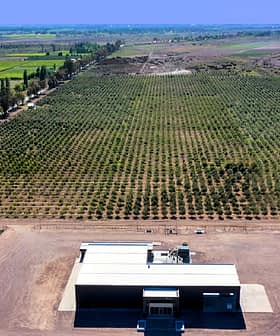Indonesia, the world’s largest producer and exporter of palm oil, has lifted its month-long ban on palm oil exports.
While lifting the ban, President Joko Widodo cited enhanced supply and higher domestic prices for palm oil as his reasons for ending the prohibition.
“Based on the current supply and price of cooking oil and considering that there are 17 million workers in the palm oil industry, both working farmers and other supporting staff, I have decided that the export of cooking oil will reopen,” Widodo said in a video statement.
See Also:Unilever Bets on Blockchain Tech for Deforestation-Free Certified Palm OilExports, which resumed on May 23, are expected to offer relief from high vegetable oil prices. Prices of edible oils have been climbing steadily since the onset of the Covid-19 pandemic.
According to market analysts, lifting the ban will increase the availability of cooking oil in the global market and help lower prices.
“The market had come down by 5 percent after Indonesia announced on May 19 that it will lift the ban on the export of palm oil,” Sandeep Bajoria, chief executive of Sundin Group, a Mumbai-based edible oil importer, told the Economic Times.
“However, as it subsequently clarified that exporters will have to meet domestic market obligations, prices again increased by 4 percent on May 20,” he added.
The cooking oil industry has been experiencing upheavals since 2021. Apart from the effects of the pandemic, which saw prices steadily increase, the Russian invasion of Ukraine has complicated matters further.
Ukraine is a significant producer of sunflower oil, a palm oil competitor. Russia’s invasion of Ukraine disrupted production and supply lines aggravating the cooking oil sector further.
Despite this, the United States Department of Agriculture estimates that global oilseed production will rise in the 2022/23 crop year as the result of bumper canola oil crops in Canada and the European Union and strong soybean production in South America.
However, palm oil is the most popular vegetable oil globally and an essential component in almost everything from food to cosmetics.
It is estimated that palm oil and its derivates are used in about 50 percent of all packaged products in stores. Indonesia’s ban pushed up costs across multiple supply chains, which further exacerbated the impacts of global inflation.
High prices of vegetable oil have squeezed consumers globally for months at a time when the world is contending with spiking prices of food items.
According to the Food and Agriculture Organization of the United Nations (FAO), March saw the highest-ever jump in food prices.
“War in the Black Sea region spread shocks through markets for staple grains and vegetable oils,” the FAO said.
When Indonesia announced the ban in April, the price of palm oil went up by about 200 percent.
The Indonesian president said that though the country had not achieved its target, he expected palm oil prices to fall in the coming weeks as palm oil availability increased.
“In several regions, I know prices of cooking oil were still relatively high, but I believe in coming weeks they will be more affordable,” Widodo said.









